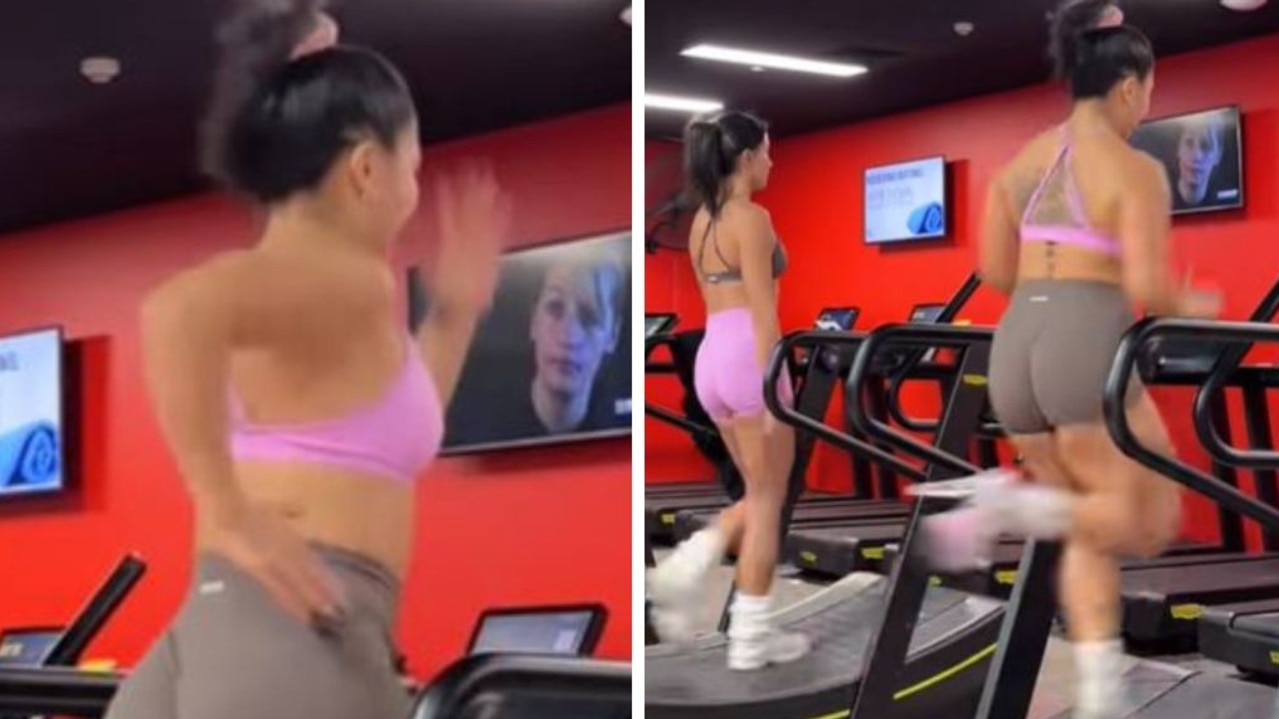Gymtimidation: This is where exercise has gone wrong
THE Biggest Loser is about to enter its 10th season, and in its own way, it’s as unhealthy as ever. This is why our attitude towards exercise has gone wrong.

A COUPLE of years ago I did a fun run called the Pub2Pub because a friend convinced me it was really just a bar crawl with a bit of exercise in between.
Actually it was a 13km sprint with an Everest-scale hill near the end. A couple of kms in I decided that rather than kill myself, and risk missing out on the promised free drink, I’d enjoy it and take in the surrounds.
“Did you see that little kid carving up the surf?” I asked my mate, puffing across the finish line 20 minutes after her. “And that street of Hamptons-style houses? And that dopey Saint Bernard freaking out over his own shadow?”
“Nup,” she said. “I just saw the road in front of me.”
She will forever have the faster time but I’d argue I had the better experience; that injecting some pleasure into the pain brings its own exhilaration and makes me want to do it again. And not just for the reward of midmorning champagne.

Yet increasingly I see exercise being stripped of pleasure. In the last decade it’s been hijacked by a clique of Nike-clad perfection evangelists for whom numbers — kilos, kilometres, kilojoules burned — are everything. Instead of being collegial, lifelong and joyful, exercise is now seen as something punitive and redemptive, a means to becoming a higher being rather than a natural and enjoyable adjunct to a busy life.
With The Biggest Loser about to begin its 10th season, it’s time we ended this annual festival of pain and shame. Sure, it’s made Michelle Bridges very rich and a few people relatively thin, but if it has any responsibility for the health of the nation — and it’s peddled faux concern for our obesity crisis from day one — it’s failed miserably. As Jillian Michaels revealed upon quitting the American version, the franchise had become a “cartoon”, edited for shock value and displaying a worrying lack of care for its contestants.

“I had to take a hard look at my work,” she said. “I came to the conclusion that moving forward, I need to be able to have an impact on the outcome of what I do.”
The Biggest Loser is rebranding itself TBL Families for the coming season in a campaign that smacks less of public concern and more of broadening its audience. Whatever. With its emotional bullying and brisk dispensing of contestants who fail to fat-shed — a friend who was on the show says it’s like being a racehorse who’s no longer profitable — The Biggest Loser is at the pointy end of an industry that needs a monumental overhaul.
Like the redrawing of the food pyramid for the first time in 15 years, exercise providers need to stop their proselytising and gymtimidation and fitness fascism and encourage a new paradigm of enjoyment and inclusivity. Lycra and sixpacks and “aspiration” are as last century as Tom Cruise; exercise 2.0 is hiking and teams and “inspiration”. It’s what it feels like, not what it looks like; it’s collective and purposeful and, crucially, makes you feel good about yourself. If it could talk, it’d say: “Hey I’m Matt Damon, do you wanna join us for beach volleyball?”

If we’re to halt the polarisation between the steroid-binning super-fit and the growing (both in numbers and girth) masses who neglect to do anything then we need to shift from the “no pain, no gain” maxim to “more joy, no ploys”.
In studies, women say they’re intimidated by gyms, while the World Health Organisation numbers suggest 80 per cent of young people globally may not be getting enough exercise. Recent research in Australia showed it takes children 90 seconds longer to run a mile (1.6 kilometres) than their counterparts did 30 years ago.
And that’s just physical health. As our communities struggle with increasing mental health issues, exercise is as fundamental as medication and counselling in holding depression and anxiety at bay.

Fun, planning, prioritisation, affordability, ease and acceptance needs to be at the vanguard of a new exercise movement. Community walking groups need to be as accessible as gastric banding surgery. Family fitness days involving orienteering and obstacle courses should be as ubiquitous as food and wine festivals. Sports centres should offer social basketball and volleyball, and annual team registrations for parents and kids should be tax deductible. Middle-age is no excuse to stop playing team sport; five years ago I went back to playing hockey after not picking up a stick since high school. I’m hopeless but it’s a highlight of my week.
Finally, as individuals we need to adopt a new mindset. Exercise is not optional. It’s a personal investment in you and your family. It’s simply about moving your body — regularly and forever. It’s recognising that perfection is the enemy of the good and pulling your joggers on regardless. Fail to exercise and you really are the biggest loser.




